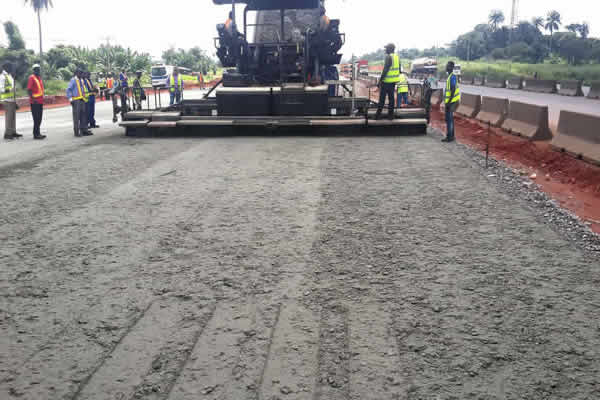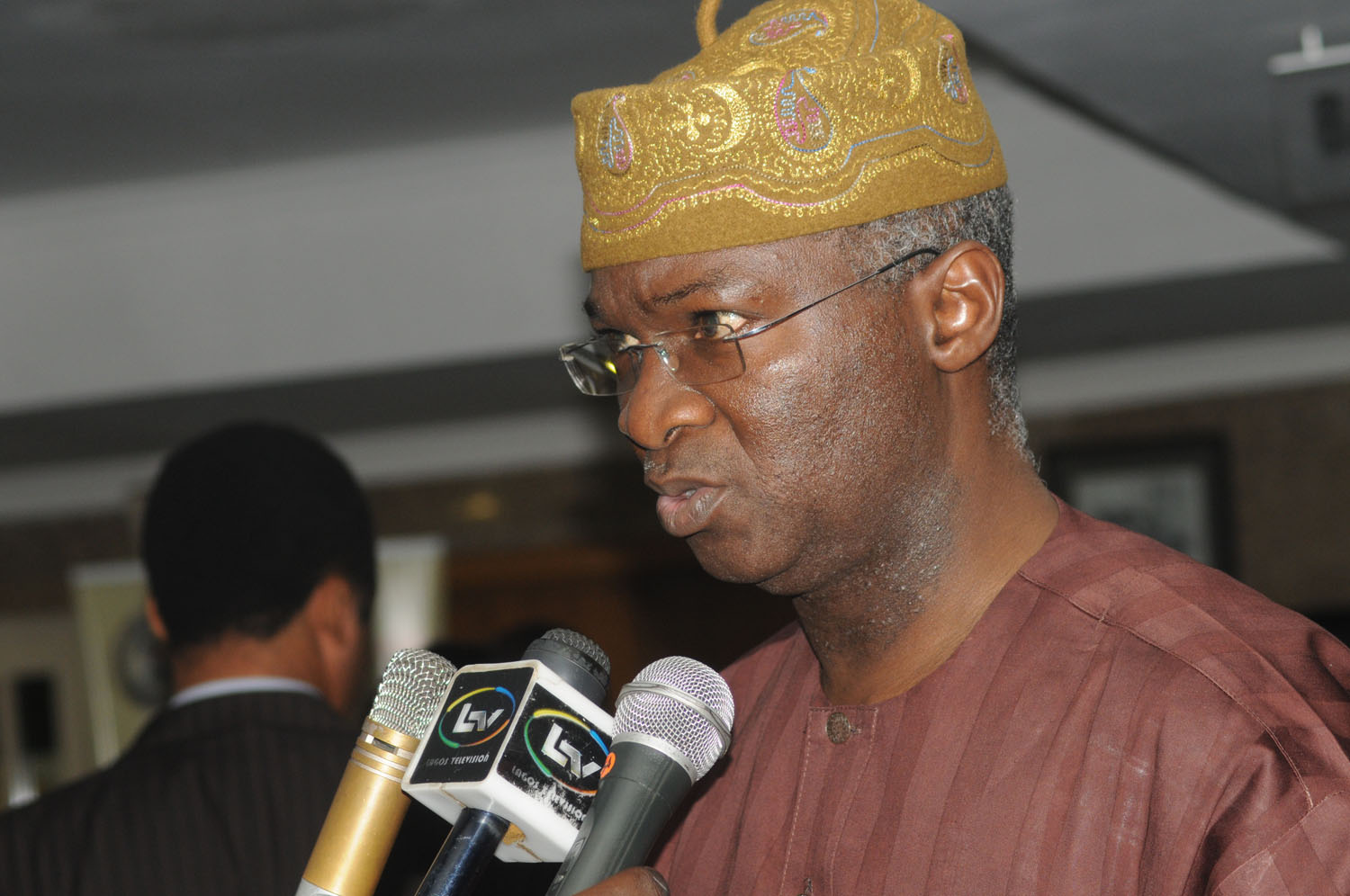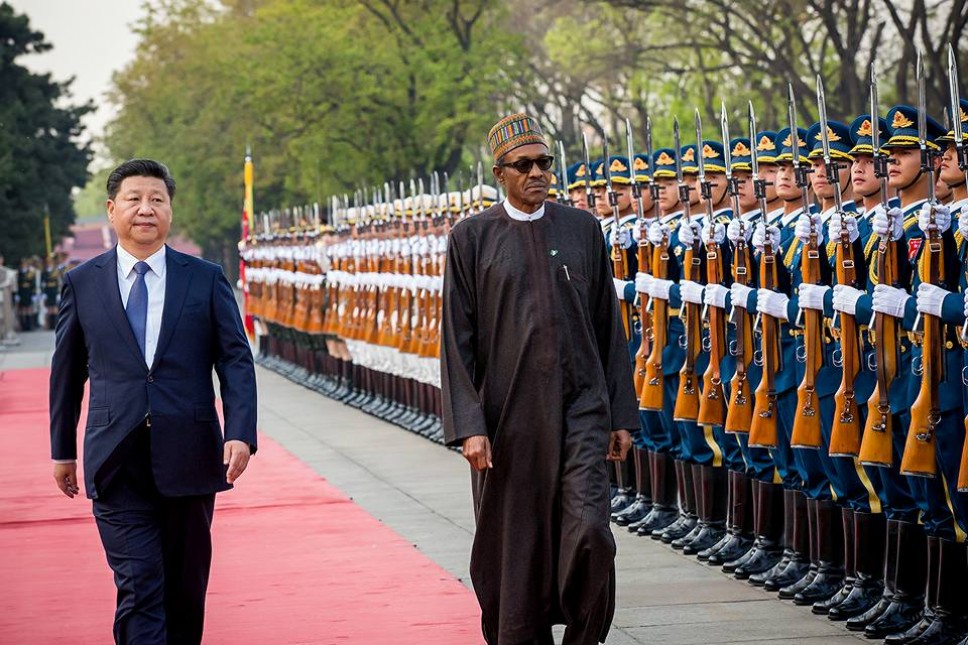BY WASILAT FAMOJURE
Babatunde Raji Fashola, SAN must act with a deep sense of responsibility and due regard for the law and the principles of natural justice. Fashola, the Honourable Minister of Power Works and Housing, is one of the shining lights of President Buhari’s cabinet. He is a ‘super minister’.
The former Lagos governor has been given three major ministries, each of undeniable significance to Nigerian lives and as the saying goes “to whom much is given, much is expected”. He has much to prove, and so he walks the talk to show that he is a man with a plan. However, in doing so, he cannot be seen to be riding roughshod over the intricacies that attend those areas over which he superintends.
This note of caution does not come a moment too soon. Fashola has been firing from all cylinders over the Lagos-Ibadan Expressway, often sending mixed signals. Hardly anyone can contradict what he said in a speech in December 2015, that, “Good roads will help reflate and grow our economy, reduce travel time, cost of transportation of goods and services, and restore jobs that have been lost to transport dependent services. They will improve safety of lives and property and our security index.”
Advertisement
The Minister followed up with his speech of January 22, 2016, at the Nigerian Pension Industry Strategy Implementation Roadmap Retreat, in which he signaled the willingness to use Pension funds for the provision of infrastructure. The speech sparked an ideological debate among Nigerian intellectuals including Kayode Komolafe, Chidi Amuta and Femi Falana; and caused a concerned Olusegun Adeniyi to ask: “Can we really take a risk with the pension fund to drive development, as suggested by Fashola, even with all its implications?”
The Pension speech was illuminating in showing the moral and legal quagmire successive Nigerian governments have got themselves into over the Lagos-Ibadan Expressway, arguably the most important road artery in this country. Government has tied itself up in knots with the many controversial executive U-turns over the road, and Fashola as Works Minister in the current administration, allowed his befuddlement to show in his speech.
He said “the Lagos-Ibadan Expressway is a story of what investors don’t like.” In his summary of how an otherwise historic concession agreement went awry between the FG and Dr. Wale Babalakin’s Bi-Courtney Highway Services Limited, tagged “Company A” in the Pension speech, Fashola conceded that it was no way to treat an investor. Noting that “local investors are the most important in any economy,”
Advertisement
He observed that the unceremonious cancellation of Bi-Courtney’s concession was “a not welcoming message” to foreign investors, if patriots like Babalakin could be treated with such disdain.
However, in expressing these concerns, Mr. Fashola did not seem to be entirely clear as to the trajectory – not to mention the causative factors – of the convoluted matters relating to the road through which he must now forge a path for the benefit of Nigerians.
He suggested that Bi-Courtney’s first recourse should have been arbitration and not the courts; and went further to imply that a suit brought by the thwarted concessionaire caused the cessation of works on the road.
In a letter dated 25th January, 2016, Babalakin drew Fashola’s attention to the erroneous detail in his keynote speech. For in a letter from exactly three years before, dated 25th January 2013, Bi-Courtney had written to Fashola’s predecessor at the Ministry of Works, Arc. Mike Onolememen, asking Federal Government to set up a Dispute Resolution Board as provided for under the concession agreement.
Advertisement
Government should work in continuity, and Fashola ought not to have been ignorant to the fact that the ministry under Onolememen blatantly ignored Bi-Courtney’s overture. The company was therefore left with no choice but to seek the intervention of the courts.
As stated in Babalakin’s letter to Fashola, “The court that set aside the so called finance agreement acted in the only manner available to it. Courts cannot continue to condone acts of government that are demonstrably irresponsible if we have to sustain our democracy and develop our economy.”
The letter also debunked the suggestion of a nexus between Bi-Courtney’s court action and the stoppage of work by contractors. This calls to question the former administration of President Goodluck Jonathan.
“How could an order obtained on 14th December, 2015 be responsible for work that had stopped about seven months earlier?” asked Babalakin.
Advertisement
Since the Pension speech, we have had a lot of motion without movement, an all too familiar scenario for road users who ply the Lagos-Ibadan Expressway. The minister has made statements about what he plans to do with the road, while exhibiting a worrying disregard for a concessionaire who has stood by the rule of law in the hope that justice and reason will prevail. No longer mindful of his earlier declared approach of “not going into the merits and demerits of the FGN’s cancellation of [Bi-Courtney’s] concession”, Fashola now says he will “fix” the road. The clouds over the Budget have dissipated finally, and government money will now be pumped into the construction.
Fashola would rather expend taxpayers’ money, in a depressed economy, on the Lagos-Ibadan expressway when he can go back to basics and revisit the aberration of a wrongfully cancelled arrangement concerning which the concessionaire cries for justice after losing $300m.
Advertisement
“Why should the developmental process of Nigeria and the lives of Nigerians be held in abeyance because you are in court?” Fashola now asks.
It is truly disheartening to hear this from a Senior Advocate of Nigeria. Is it the man who goes to court that has stalled Nigeria’s development, or the government that impedes societal progress in a flagrant disregard for the law? Is this the Change we are selling? Meanwhile, Nigeria has lost its place as the erstwhile third fastest growing economy in Africa, and does not even figure among the Top 15 – according to the IMF’s World Economic Outlook for 2016. The World Bank’s Doing Business Report (WBDBR) 2016 also ranks Nigeria as one of the worst countries in the world to do business.
Advertisement
Instead of mitigating these dire reports by working to re-engineer a business friendly environment, government seems bent on giving one of the country’s most courageous investors a drubbing at what cost? Why are we so blest?
One is minded to agree with Babalakin when he writes that, “The investment climate of Nigeria has been bedevilled by the short-sighted actions of public officers, especially when dealing with the rights of investors.
Advertisement
So many investors have been totally ruined by the utterances and actions of public officers which are detrimental to the development of investor confidence and consequently have an adverse effect on the growth of the Nigerian economy.”
Mr. Fashola needs to set aside political considerations, perchance there be any, and act purely in the interest of Nigeria; and sit down with the erstwhile concessionaire to forge a path through the debacle that is the Lagos-Ibadan expressway. Fashola’s legacy as Buhari’s ‘super minister’ depends on it, and future generations will thank him if he chooses the right path.
Famojure runs a landscaping business in Lagos.
Views expressed by contributors are strictly personal and not of TheCable.
Add a comment






